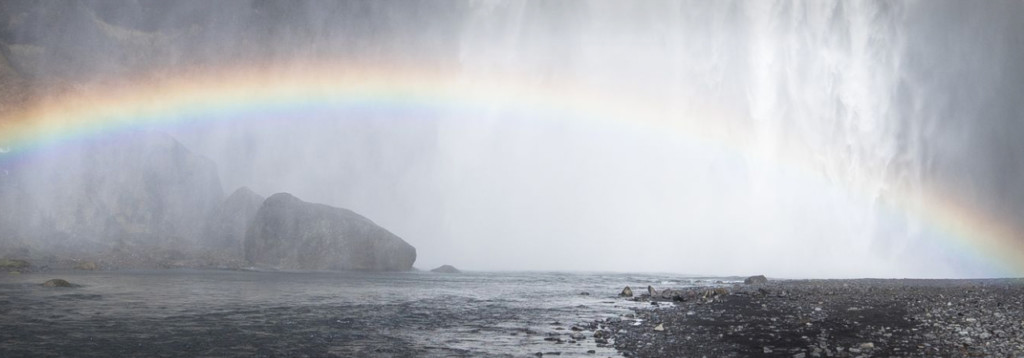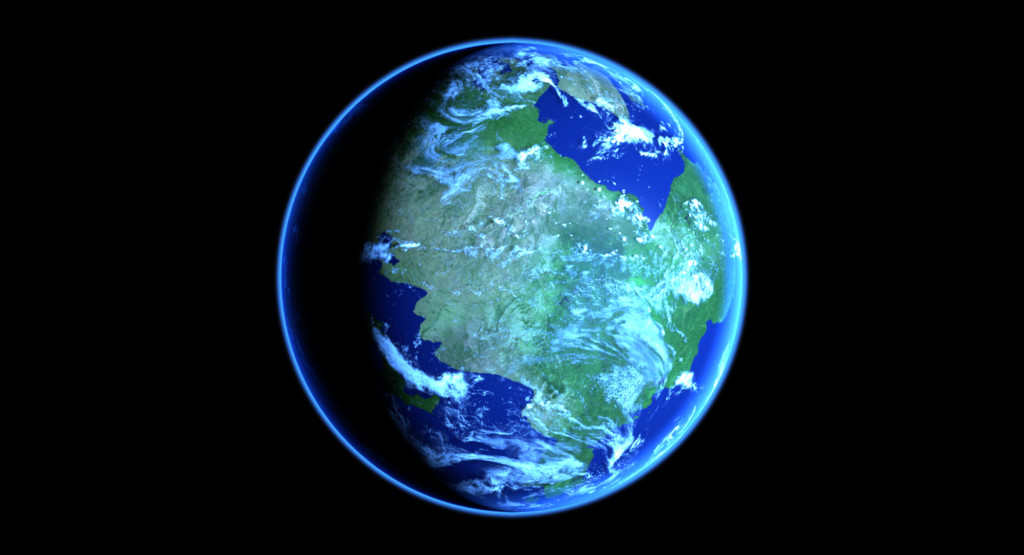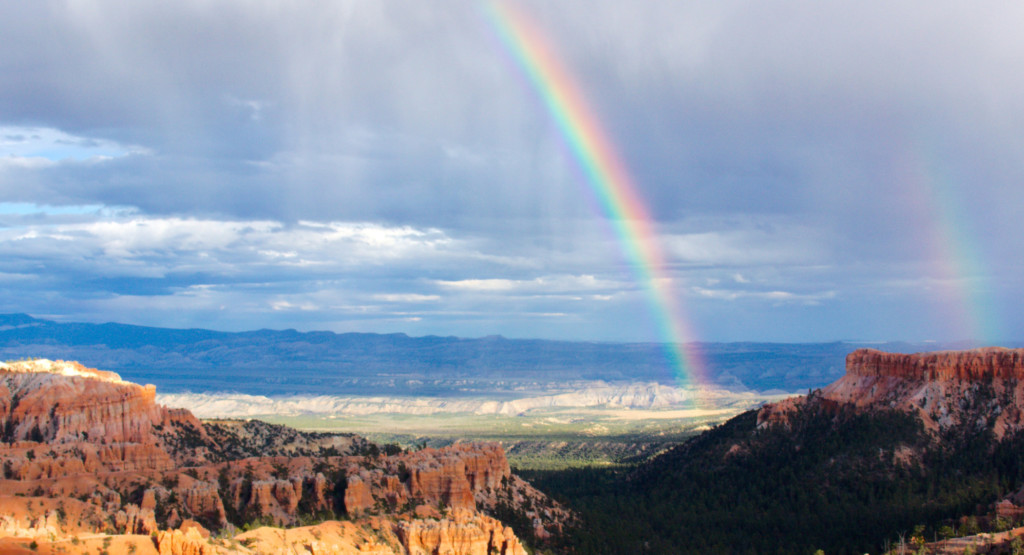
Was There Rain Before the Flood?
Want to learn more about how Noah’s Flood changed the world? Click Here to sign up for our free “Noah’s Flood in a Bottle” science project!
In the second chapter of Genesis, the Bible gives the following description of the pre-Flood world:
“. . . no bush of the field was yet in the land and no small plant of the field had yet sprung up—for the Lord God had not caused it to rain on the land, and there was no man to work the ground, and a mist was going up from the land and was watering the whole face of the ground . . .”
Many have taken this passage to mean that, before the Flood, our world was not watered by rain, as it is today, but exclusively by these mysterious mists rising from the land. Is this an accurate view of earth history, or has a hasty interpretation of scripture clouded the passage’s true meaning?
A World Without Rain?
First, we must acknowledge how difficult it is to create a rain-free water cycle. Current weather patterns are a result of the evaporation and condensation of water in the atmosphere. Water evaporates off the Earth’s surface, then rises into the atmosphere, where it condenses into clouds and eventually falls back as rain. It is difficult to imagine a physical scenario where this does not happen.
For many years, it was believed that the Antediluvian Earth was covered by a water vapor canopy that prevented rain, oxygenated the atmosphere, and blocked out harmful radiation. Mathematical modeling, however, has shown that any vapor canopy of significant thickness would have boiled the planet long before providing any of the alleged benefits.
Despite this, there are some who still cling to the vapor canopy model, claiming that, despite its imperfections, it is still the best explanation for pre-Flood lifespans, the incredible size of fossil organisms, and other mysteries of the Antediluvian world. Many of these mysteries, however, can be solved by far more mundane explanations. The rapid drop in life expectancy after the Flood is more likely to be the result of genetic bottlenecking than increased radiation (as is claimed) and most of the anatomical challenges for creatures like dinosaurs, pterosaurs, and giant insects are more imagined than real.
Although exciting, the canopy theory seems to cause more problems than it solves and, as a result, has been largely rejected by creation scientists. This leaves us with precious few answers as to how a world without rain might have functioned, but, if the Bible says that it did not rain until the Flood, then it is ignorance, not impossibility that keeps the answers from us.
Perhaps it is worthwhile to revisit the scriptures.
What Does the Bible Say?
Does the Bible actually say that there was no rain before the Flood? To answer this, we must turn back to the passage in question, presented below in its entirety:
“When no bush of the field was yet in the land and no small plant of the field had yet sprung up—for the Lord God had not caused it to rain on the land, and there was no man to work the ground, and a mist was going up from the land and was watering the whole face of the ground—then the Lord God formed the man of dust from the ground” – Genesis 2:5-7
An important clue is given here. Genesis 2 describes a time when there was no rain and no man to work the ground.
“ . . . then the Lord God formed the man of dust from the ground.”
Since Genesis 1 tells us that Man was created at the end of Day 6, we can interpret this passage to mean that it had not rained over the first 6 days of Creation. To stretch the statement further, however, especially to include the almost 1,700 years of pre-Flood history, would be an abuse of the passage.
What About the Rainbow?
Many claim that the creation of the rainbow (Genesis 9:13) after the Flood is evidence that it had never rained before. This argument makes one critical mistake, however – it necessarily links rainbows to rain.
Anyone who has watched sprinklers on a hot summer day can tell you that you don’t need actual rain to produce a rainbow. Even “mists going up from the land” will form a rainbow if the light hits it just right. The problem is even worse if one interprets Genesis 9:13 as God speaking the rainbow into existence (as opposed to blessing a preexisting phenomenon). In this scenario, it would not matter if it had rained before the Flood or not – the rainbow still would not have appeared, as God had not yet created it.
In the end, the rainbow’s role in the Noahic covenant seems to have little bearing on the question of pre-Flood rain.
Conclusion
In this article, we have examined the evidence and arguments for and against the existence of rain before the Flood. Given the lack of solid scriptural and scientific evidence to the contrary, it seems most reasonable to assume that the pre-Flood world had a water cycle very similar to our own. Others may review these arguments and come to a different conclusion.
That is fine.
The existence of competing ideas is a key trait of functioning science. Sometimes, these disagreements are the result of poor or outdated information. Other times, different theories each best explain different parts of a subject and our confusion is simply a result of imperfect knowledge. In either case, it is vital that we, as Christians, keep our enthusiasm in check when dealing with such controversies.
The subject of rain before the Flood is one of many areas where people become strangely divisive, often going so far as to question the salvation or sincerity of those who disagree with them. Such behavior is nonsensical. While answering the question of pre-Flood rain may be useful to the geologist, seeking to date certain rocks, or to the paleontologist, seeking to understand pre-Flood habitats, it is of little to no significance from a spiritual standpoint.
When navigating such issues, we must be sure that we do not champion our own theories to the harm of our brethren, lest we become worshipers of ideas rather than Christ. In the end, we should remember the words of the apostle Paul:
“If I speak in the tongues of men and of angels, but have not love, I am a noisy gong or a clanging cymbal.And if I have prophetic powers, and understand all mysteries and all knowledge, and if I have all faith, so as to remove mountains, but have not love, I am nothing.If I give away all I have, and if I deliver up my body to be burned, but have not love, I gain nothing.” – 1 Corinthians 13:1-3
Want to learn more about how Noah’s Flood changed the world? Click Here to sign up for our free “Noah’s Flood in a Bottle” science project!


